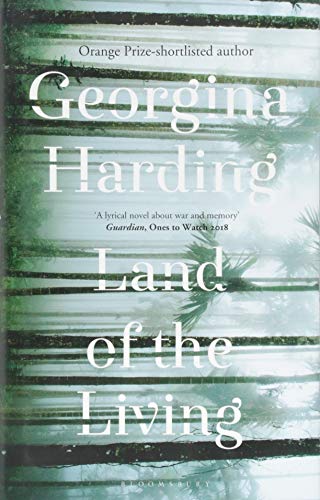Land of the Living
Charlie Ashe, a survivor of World War II battles against the Japanese in the uplands of northern India, is trying to adapt to a new life on the Norfolk farm he has inherited from his bachelor uncle. But memories of the war recur constantly as he tries to pick what he can share with his well-meaning but sheltered wife, Claire, and what he must keep to himself.
All of Harding’s previous novels have been highly acclaimed and/or short-listed for major prizes, and it is easy to see why. This is a powerful and lyrical novel, exploring the sense of guilt and alienation that separates war veterans from civilian life. We know right from the beginning that Charlie spent time alone and lost in the rainforest, though he started off in a four-man patrol, but the flashbacks only gradually spiral in to reveal what became of the others and what other grisly secrets haunt him. Although atrocities lie at the heart of the book, nothing ever feels gratuitous.
I could imagine this literary novel being turned into a visually arresting film, with the contrast between the flat, muted browns of a Norfolk winter and the lush green mountains of Nagaland with their fortified hilltop villages and sudden mists, low cloud and heavy showers. Despite its grim subject matter, the novel is deceptively easy to read, divided into short sections (some only a few paragraphs long), alternating between Charlie’s life with Claire, his more palatable memories, and the things he can barely acknowledge to himself. Some readers may be irritated by the absence of speech marks, but I found I barely noticed this quirk because it was always clear who was speaking. A book that will linger in my memory for a long while.










